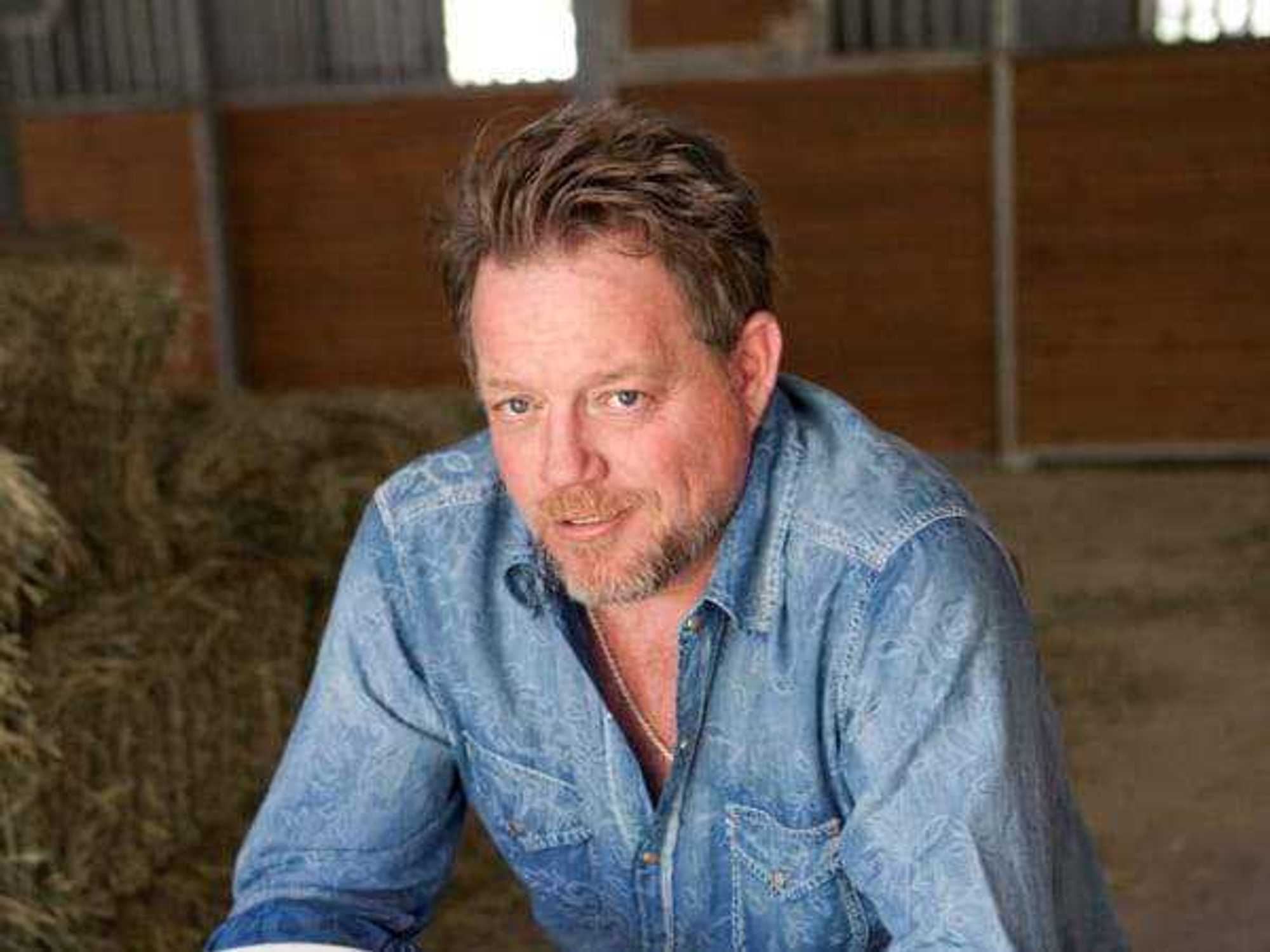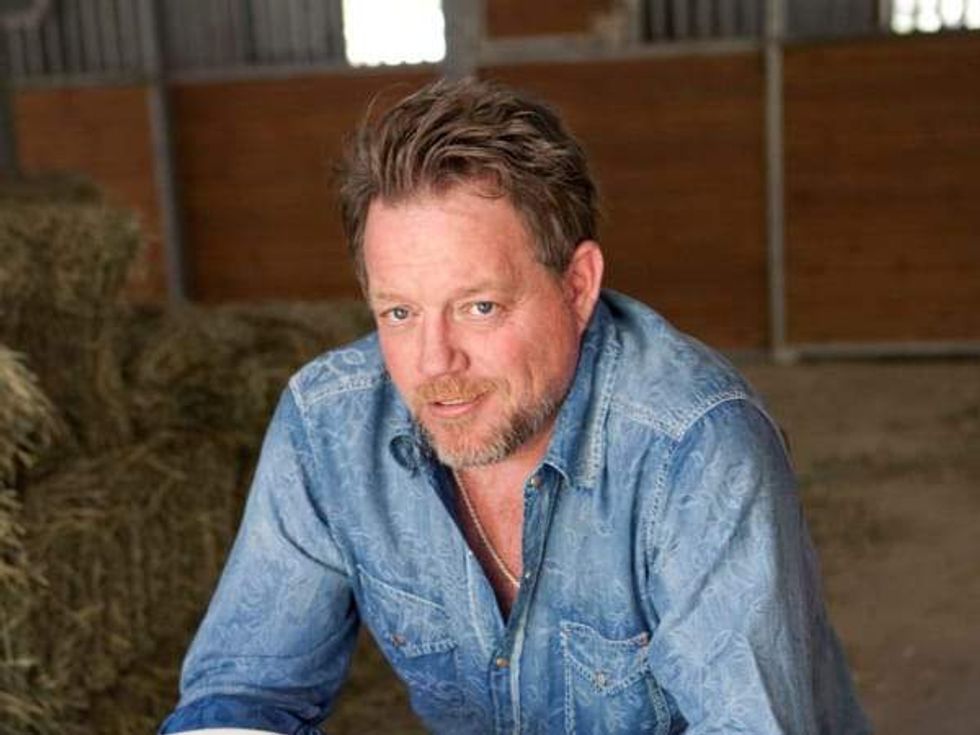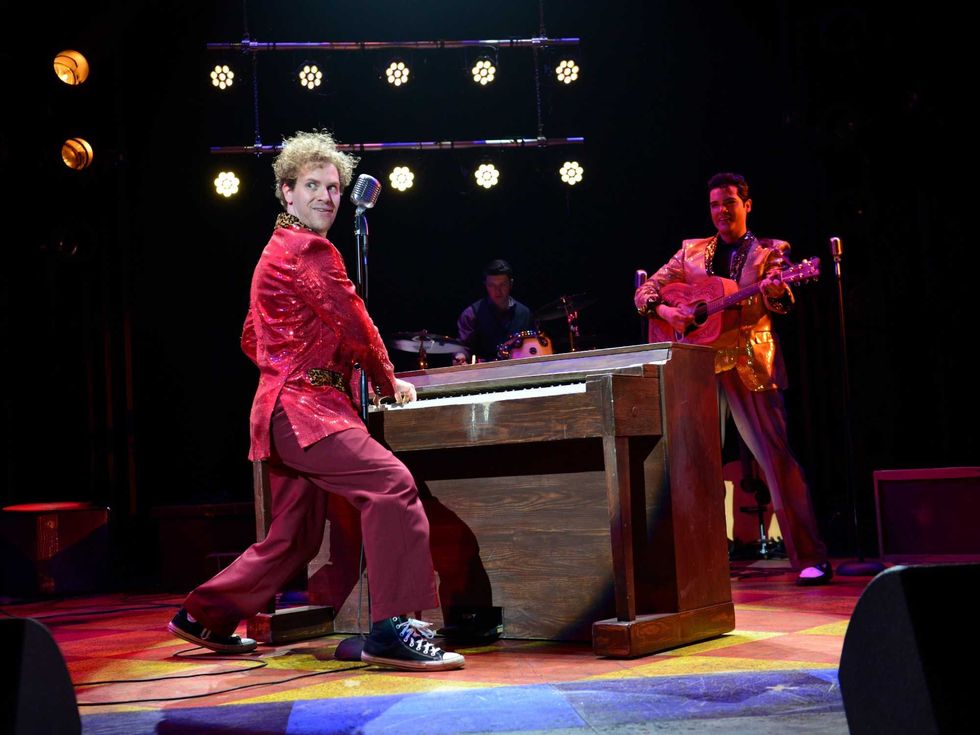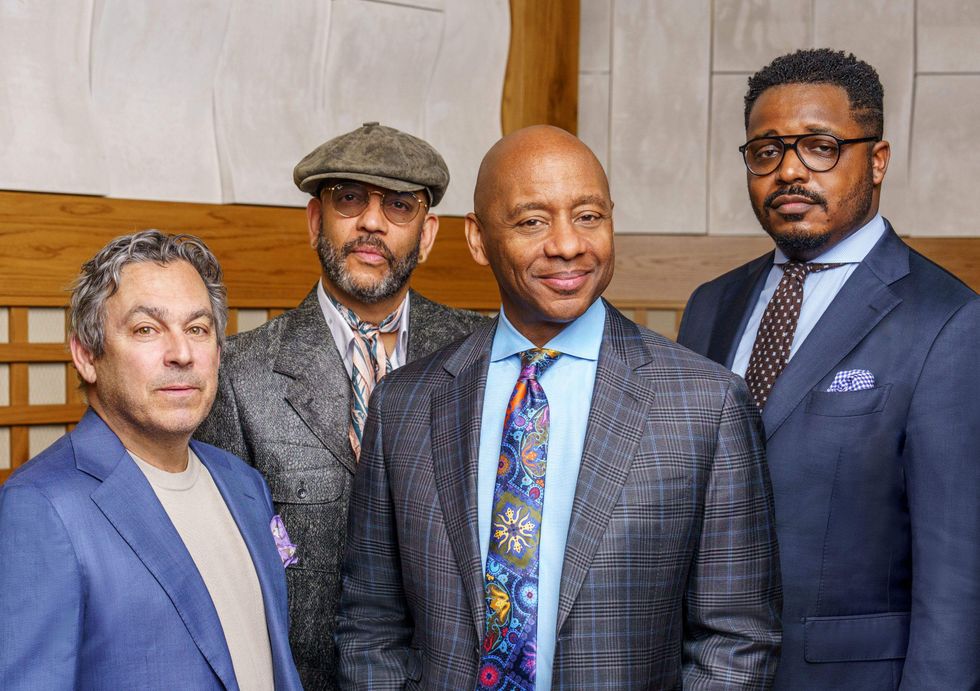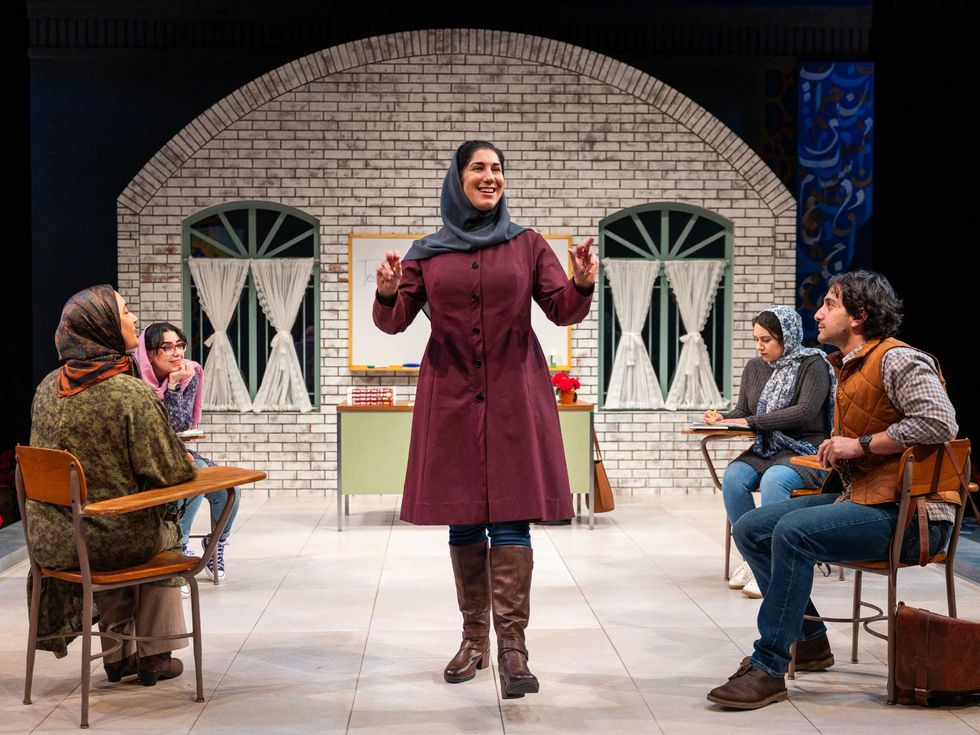With the Houston Livestock Show & Rodeo about a week away, several events this weekend are preparing Houstonians for the western splendor of it all, including a pop-up at Autry Park, a rodeo glam brunch at Zanti Cucina Italiana, and a Boots & Brews Market at Bayou Heights Bier Garten.
This weekend, we also have a couple of DACAMERA shows, a music festival at Karbach Brewing, and one more Lunar New Year celebration at Space Center Houston.
Thursday, February 19
Autry Park and Tidbits present Rodeo Ready Pop-Up: Grand Opening
Autry Park is saddling up with Tidbits to present the Autry Park Rodeo Ready Pop-Up — a three-weekend shopping and social experience. Running Thursdays through Saturdays, the limited-time pop-up brings together Western-inspired fashion, accessories, gifts, and immersive experiences designed to get Houstonians ready for the Houston Livestock Show & Rodeo. Attendees are invited to stroll, sip, shop, and stay awhile — making a day (or night) of it in the heart of Autry Park. Through Saturday, March 7. 11 am.
Laura Rathe Fine Art presents Meredith Pardue: "Stones That Learned to Breathe" opening reception
Laura Rathe Fine Art artist Meredith Pardue introduces an opulent collection of new large scale paintings that merge the solidity of natural minerals and gemstones with the ephemeral quality of breath. Pardue wildly layers hues ranging from bold, commanding jewel tones to subtle, opalescent washes reflecting actual fragments of light from the surface, as if each stone holds a quiet, living presence. Through Sunday, March 22. 6 pm.
Texas Children’s Hospital presents Cooking Up a Cure
The 8th Annual Cooking Up a Cure is a culinary experience spotlighting Houston’s top chefs and restaurants. Guests enjoy bite-sized signature dishes in a dynamic, networking-focused atmosphere. Participating restaurants include Le Jardinier, Latuli, Loro, Navy Blue, State of Grace, The Blind Goat, Truluck’s, Uchi, Uchiko, and Xalisco. The event supports research and exceptional care for patients in the Department of Allergy and Immunology at Texas Children’s, led by Dr. Lisa Forbes Satter. 6:30 pm.
Friday, February 20
Planned Parenthood of Greater Texas presents Versus
For years, Houston celebrated the right to safe and legal abortion with the annual Roe v. Wade Luncheon, and Planned Parenthood of Greater Texas will continue this legacy in a new era. Held at Hilton Americas-Houston, the event will honor Melaney A. Linton with the Second Century Award. It will also feature a panel discussion with Dr. Anitra Beasley, Taylor Edwards, and Olivia Julianna, moderated by Elena M. Marks. Noon.
DACAMERA presents Brooklyn Rider: Frida’s Dreams
Composer Gabriela Lena Frank explores the tumultuous relationship between Mexican painters Frida Kahlo and Diego Rivera in a new string quartet based on her acclaimed 2021 opera El último sueño de Frida y Diego. This new multi-media DACAMERA production features projections based on the paintings of Frida Kahlo. Musical quartet Brooklyn Rider will make their DACAMERA debut, as DACAMERA Young Artists join the quartet for Osvaldo Golijov’s octet Ever Yours and Rider’s arrangements of traditional folk music. 7:30 pm.
Alley Theatre presents English
Winner of the 2023 Pulitzer Prize, English is a heartfelt, humorous play that follows five strangers in an Iranian TOEFL class as they navigate language, identity, and unexpected friendships. Each brings a personal reason for learning English, discovering along the way what is lost and found in translation. While some things may get lost, the human spirit shines through. Through Sunday, March 8. 8 pm (2 & 8 pm Saturday; 2 & 7 pm Sunday).
Theatre Under the Stars presents Million Dollar Quartet
Million Dollar Quartet transports audiences to December 4, 1956, when a twist of fate brought Johnny Cash, Jerry Lee Lewis, Carl Perkins, and Elvis Presley together for an unforgettable jam session at Sun Records in Memphis. The musical features iconic hits like “Blue Suede Shoes,” “I Walk the Line,” “Great Balls of Fire,” and many more. This once-in-a-lifetime moment comes alive onstage with a mix of broken promises, untold secrets, fiery betrayals, and joyous celebrations. Through Sunday, March 1. 8 pm (7:30 pm Thursday; 2 & 8 pm Saturday; 2 & 7:30 pm Sunday).
Saturday, February 21
Space Center Houston presents Lunar New Year Celebration
Join Space Center Houston to celebrate Lunar New Year and experience the rich traditions behind this vibrant holiday. This two-day event will have you enjoying cultural activities, discovering fascinating facts about the moon, and engaging in fun, hands-on science experiments. There will also be lion dances, pop-up labs and astronaut presentations with NASA astronaut Col. Carl Walz. It’s a perfect way to ring in the new year while learning about space and the wonders of our lunar neighbor. 10 am.
Zanti Cucina Italiana presents Rodeo Glam Brunch
The River Oaks restaurant will transform into a western-glam hotspot, featuring new brunch menu offerings, rodeo-inspired cocktail specials, and tableside moments, all set to a live DJ spinning country favorites alongside music from artists performing at the 2026 Houston Livestock Show and Rodeo. Customers are encouraged to embrace the western glam dress code and enjoy a curated hat pop-up by A.B. Lino. 11 am.
Karbach Brewing Co. presents ZiegFest Music Festival
The ZiegFest Music Festival, presented by Karbach Brewing Co., will feature performances by Pat Green, Mike Ryan, and the Droptines. The festival will include bars, concessions, official band merch, event merch, and specialty items from local vendors for purchase throughout the biergarten. VIP passes will include complimentary drinks, food, ZiegenBock swag and special access to VIP areas. 4 pm.
Rice Cinema presents Manila in the Claws of Light
To celebrate the 40th anniversary of the People Power Revolution in the Philippines, Rice Cinema (In collaboration with Anakbayan Houston) will screen the 1975 film Manila in the Claws of Light. Júlio Madiaga, a young fisherman from the province of Marinduque, arrives in Manila and descends into social alienation as he searches for his lover, Ligaya. Filmmaker and activist Lino Brocka’s work sheds light on the harsh realities of life under martial law. 7 pm.
Sunday, February 22
Bayou Heights Bier Garten presents Boots & Brews Market
Bayou Heights Bier Garten will transform into a rodeo-ready playground with its Boots & Brews Market. Houstonians are invited to spend an afternoon packed full of entertainment, including local Western-inspired vendors, live music from the Saint E Street Band, mechanical bull rides (starting at 5 pm), and rodeo ticket giveaways and prizes throughout the afternoon. Reservations available on Resy, but walk-ins are welcome. 3 pm.
DACAMERA presents Branford Marsalis Quartet Belonging Tour
Branford Marsalis brings his trademark energy and virtuosity to a re-imagining of Keith Jarrett’s classic 1974 album, Belonging. Quartet’s Belonging recording has been nominated for a Best Instrumental Jazz Album Grammy, and named album of the year in the DownBeat readers poll and one of the 20 best jazz albums in last year’s Jazzwise critics poll. A three-time Grammy winner and NEA Jazz Master, Marsalis has led his quartet with clarity and power for over three decades. 5 pm.
Cullen Performance Hall presents Muertas de la Risa
Muertas de la Risa (Dying of Laughter) is a hilarious story starring two women in a crazy and absurd situation. Lorna Cepeda and Natalia Ramírez will reveal their deepest secrets and face a decision that will have the audience roaring with laughter. They will question the love they felt for their man and realize that love cannot be shared, bought, or sold, and that having self-love is more important than loving someone else. We’re talking unspeakable confessions, tumultuous love affairs, and a truth that will surprise everyone and leave them dying of laughter. 6 pm.

